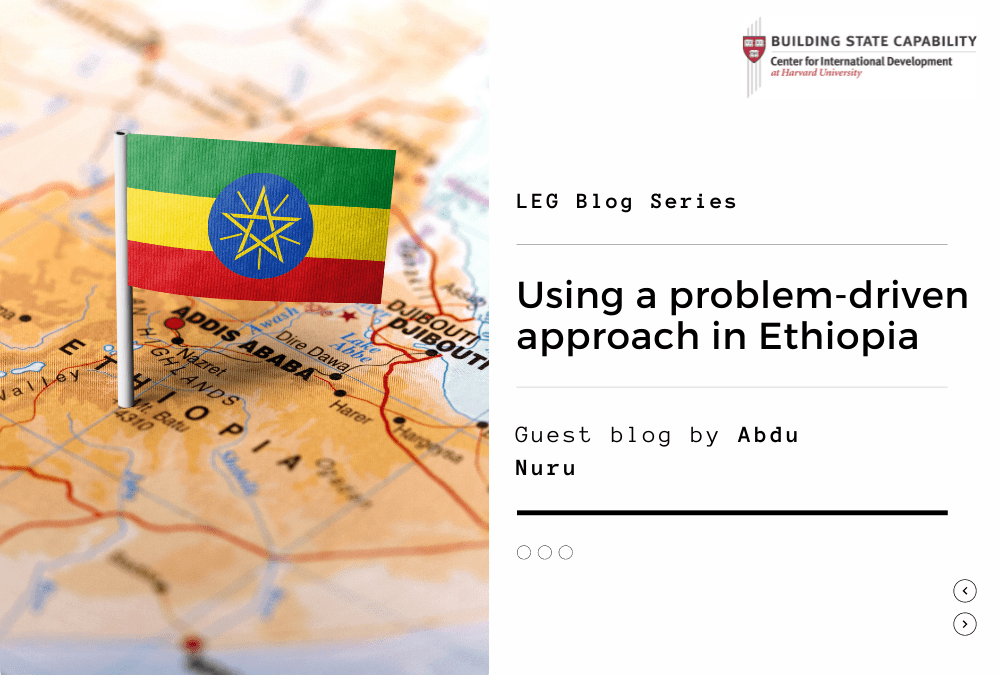Guest blog by Abdu Nuru
It was my director in my department who sent the email to us briefing us about the program. It specifically addressed those who were in a more senior leadership level as it would be more important. I read the whole email and I knew it wasn’t meant for me because it said case team leaders and blah blah blah. And I thought who said that? The last thing I could get is rejection and if I am accepted, it would be a great experience. I applied and I was admitted.
That was my journey to the first formal online program, and it ended up being a very important course especially to people who work in a similar sector to me. From defining a regional or national growth problem to devising a high level and inclusive strategy, Leading Economic Growth offered miraculous insights and approaches on how to solve complex problems.
I work at the Ethiopian Agricultural Transformation Agency, Analytics Department as an Analyst. We usually work in a group of 4-6 people to solve complex and challenging problems, address major constraints in the agricultural sector, and propose creative and adaptive solutions. Although we have a structured approach to solving different kinds of cases, we never usually have the chance to be problem-driven as in the LEG way. A problem or challenge is provided to us and some causes for that, and we try to solve these problems. We don’t examine if these factors or constraints caused the given problem.
In LEG, constructing and deconstructing your economic growth challenge gives you full insight into how to approach your challenge. Diagnosing your growth challenge to reach the exact syndromes, constructing a fish-bone diagram to have a visual of your challenge, identifying your binding constraints give you a real-world experience of addressing growth challenges.
The peer learning session and live Q&A session have given me a new perspective on how to look at the economic complexity of the largest country to the smallest state. I have gained a good share of knowledge on measures of economic complexity, import and export factors, and the relationship between know-how and growth.
Although I didn’t attend all, the deep dive sessions have been thorough on the topics raised. It becomes very clear to someone who even learns it for the first time. The individual assignments on our growth challenge were very important as they were the motivations to read the materials and watch the videos provided to us on Canvas. We shared our assignments in the peer learning group, gave constructive feedback to each other, re-iterated and refined our works to the last time. Every group member was very engaged, supportive, and has been throwing challenging questions with everyone.
I live in Ethiopia, and as you have already known, I am in a complex situation for now. When things get smooth and cool, the first thing I want to do is take a course at the HKS on-campus. I hope that will give me a great experience more than the online program. Thank you so much for your continuous support.
This is a blog series written by the alumni of the Leading Economic Growth Executive Education Program at the Harvard Kennedy School. 61 Participants successfully completed this 10-week online course in December 2021. These are their learning journey stories.
